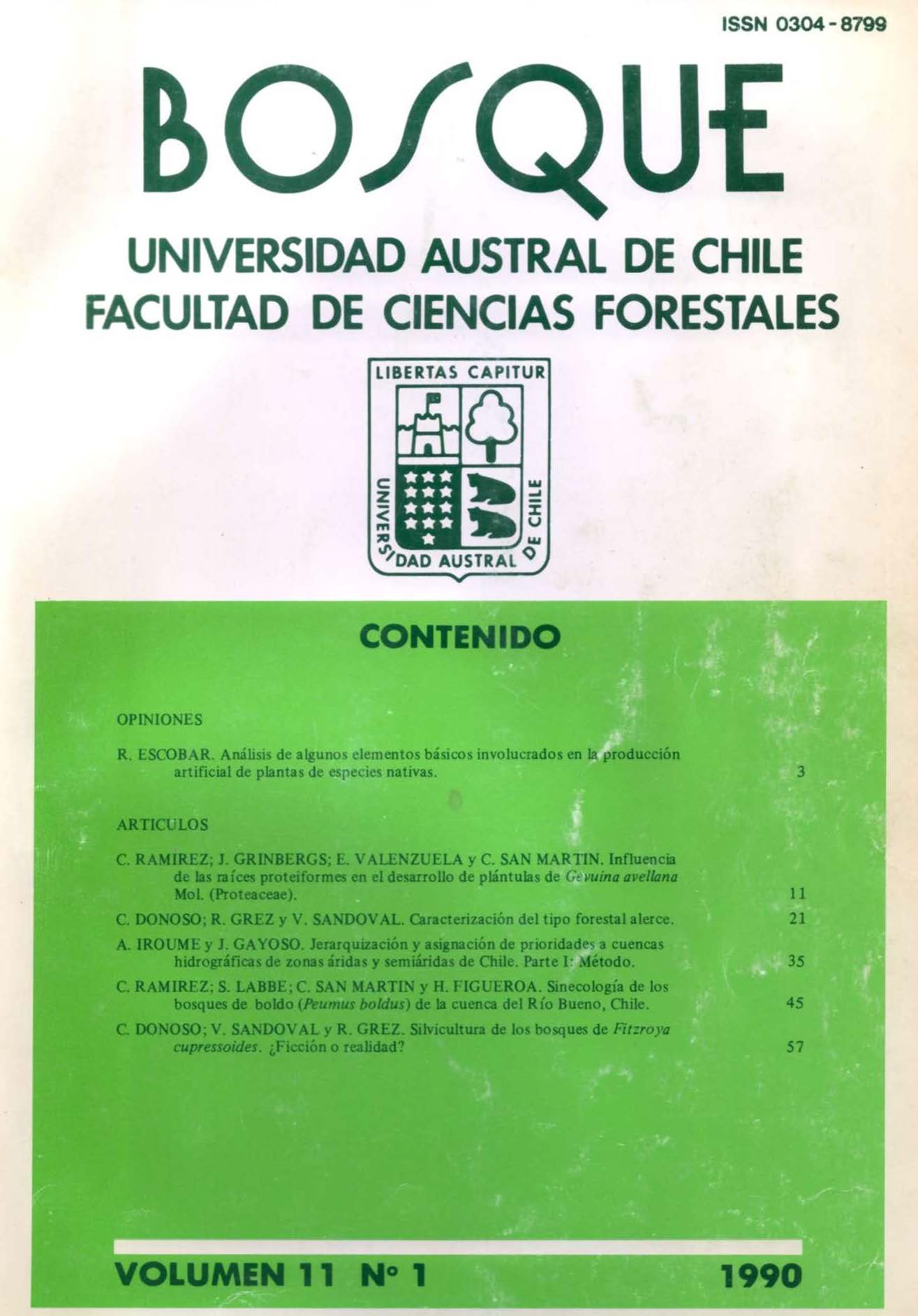Influence of proteoid roots in the development of Gevuina avellana Mol. (Proteaceae ) seedlings
Main Article Content
Abstract
Proteoid roots are clusters of rootlets which grow close to one another in longitudinal rows and which surround the root axis. In order to test their significance for the plant, the development of Gevuina avellana Mol. in greenhouses over sterilized volcanic ash soil was compared with the development of those plants grown on normal, non-sterilized volcanic ash soil.
The seedlings were obtained through sterile germination of seeds from the province of Valdivia and Llanquihue, Chile. Eight months after transplanting, the seedlings were removed to count the number of leaves and the number of proteoid clusters in each plant, to measure the size of the shoot and of the root, and to determine the dry weight of the various organs. Furthermore, chemical analyses of the foliar matter were performed.
The plants grown on sterilized soil did not form proteoid roots, while those grown in normal soil varied in the number of rootlet clusters present, depending on the origin of the seeds. Plants with proteoid roots presented greater development than plants lacking these roots. The greatest difference was found in biomass production rather than size, demonstrating that proteoid roots tend to favour G. avellana's development. The formation of proteoid roots is brought about by the soil's microorganisms and it depends on the genetic disposition of the plant. The proteoid roots did not show selectivity in the absorption of nutrients. Therefore, we postulate that the function of proteoid rootlets is to increase the absorption of water by the plant. This hypothesis is confirmed by field observations and by the literature.

